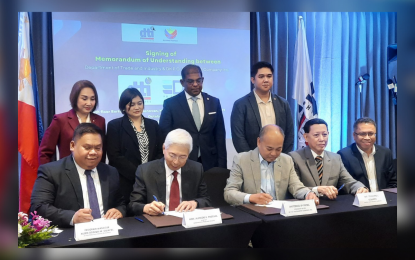 Filipino exporters are being urged to apply for Halal certification for their products and services in order to tap the huge global Halal market, a government press release said.
Filipino exporters are being urged to apply for Halal certification for their products and services in order to tap the huge global Halal market, a government press release said.
Malaysia External Trade Development Corp. Trade Commission Har Man Ahmad on Saturday said the certification will help exporters to maximize their potential abroad as Halal consumers are seeking Halal certification not only on products but also in services.
Halal products are branded as healthy, wholesome and hygienic.
Ahmad added that non-food products and services shall also be Halal certified. These include logistics, financial, insurance and health care-related goods.
“There are a lot of potentials (for these products). Just by having a small Halal seal will bring big difference to your products being exported abroad,” he said.
The Halal industry is very big…for the Philippines to benefit the Middle East market which actually has a very huge potential, Halal certification is one of the compulsory things that you have to undertake, he reiterated.
An international conference and expo on Halal industry in Pakistan has estimated that the global Halal market was pegged at $2.3 trillion excluding Islamic banking.
Sixty-seven percent were shared by food and beverages products; pharmaceutical at 22 percent; and personal care and cosmetics at 10 percent.
This lucrative market is pushed by demands from the 1.83 billion Muslim population in 2009 with an average growth rate at 1.8 percent per annum.
Even non-Muslim countries have demand on Halal-certified products because of its quality.
Key Halal markets include Algeria, Bahrain, Egypt, Indonesia, Iran, Iraq, Jordan, Kuwait, Lebanon Malaysia, Morocco, Oman, Saudi Arabia, Syria, Tunisia, Turkey, United Arab Emirates, Yemen, and Pakistan.
Other Halal markets in non-Muslim countries are: India, China, United States, France, Germany, United Kingdom, Canada, and Philippines.



